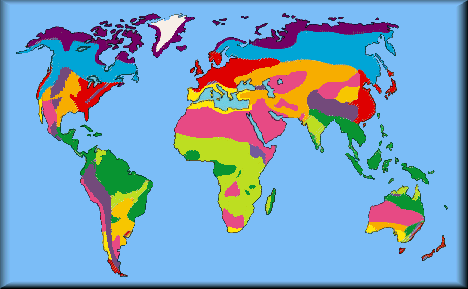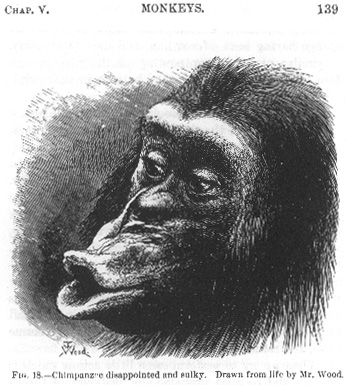 science as certain knowing
science as certain knowingNavigating the site:
"for scientific knowledge... is inherently provisional."
"All any honest scientist is really trying to do is approximate the truth, in the realization that the ultimate truth is unknowable through scientific means, and that the knowledge he or she generates is invariably susceptible to modification."
p. 5.
"In America today,... there is a widespread mistrust of science that is largely born of a lack of understanding of what science actually is."
"and there is no particular method that will give you the key to all the types of scientific inquiry."
p. 3.
"but it's an unavoidable fact that the solution of one scientific problem regularly leads to the identification of others that are probably equally tricky if not more so."
p. 7.
Proving a hypothesis to be wrong, or finding errors.
"For this system of provisional knowledge to work, however, its necessary that, to the extent possible, scientific hypotheses be proposed in such a way that they are at least potentially falsifiable --provable to be wrong."
p. 5.
"but a scientific statement has to be subject to disproof if it's wrong or lacking something."
p. 10.
What is science? | defining science | basic science page | uncertainty | bias | attitudes
Aristotle | Bachelard | Bateson | Bronowski | Capra | Carson | Darwin | Dawkins | Ehrlich | Einstein | Feynman | Gell-Mann | Halley | Hansen | Hardin | Hawking | Judson | Kaku | Keller | Lewontin | Margulis | Newton | Occam | Schmidt | Steingraber | Tattersall | Thomas
Other works by Ian Tattersall
Becoming Human : Evolution and Human Uniqueness by ...
human-nature.com/interviews/tattersall.html
Ian Tattersall: I started off as a paleontologist, interested more in the anatomy and ... don't see the human evolutionary record as one of progression toward language. ... as the primary explanation for physiological and behavioral development.
Amazon.co.uk: Ian Tattersall - Anatomy & Physiology ...
www.amazon.co.uk › ... › Anatomy & Physiology
Amazon.com, Inc.
... Human Journey: Around the World in 22 Million Days (Adventures of the Museum Mice). 8 Oct 2013. by Ian Tattersall and Rob DeSalle ... Language. English ...
Ian Tattersall | BookCourt
bookcourt.com › Events
Join Ian Tattersall & Will Harcourt-Smith for an in-depth discussion and audience ... origins, surveying a vast field from initial bipedality to language and intelligence. ... (1997) at University College London, and his B.Sc. in Physiology ( 1994) at ...
Dr. Ian Tattersall's Publications - American Museum of ...
www.amnh.org/our.../publications
American Museum of Natural History
The physiological basis of the fine arts. J. Amer. ... (David Roberts and Ian Tattersall). ...... A putative role for language in the origin of human consciousness.
Amazon.ca: Ian Tattersall - Anatomy & Physiology / Science ...
www.amazon.ca › ... › Anatomy & Physiology
Amazon.com, Inc.
Jan 26 2007. by Ian Tattersall and Rob DeSalle ... Books · Children's Books · Science, Nature & How It Works; Anatomy & Physiology. Refine by ... Language.
Individual Books — Ian Tattersall
www.iantattersall.com/books/
In his new book, human paleoanthropologist Ian Tattersall argues that a long ... geology, and climatology, to sensory physiology, neurobiology, and the inner ... Surveying a vast field from initial bipedality to language and intelligence, Ian ...
Ian Tattersall - Wikipedia, the free encyclopedia
Ian Tattersall (born 1945) is a British-born American paleoanthropologist and a curator emeritus with the American Museum of Natural History in New York City, ...
Extinct Humans - Kindle edition by Ian Tattersall, Jeffrey ...
www.amazon.com › ... › Anthropology › General
Amazon.com, Inc.
In Extinct Humans, Ian Tattersall and Jeffrey Schwartz present convincing .... in anatomy from the pre-homonids to the homonids meant for our physiology and ... and the advent of complex social relationships and sophisticated language, ...
The Brain: Big Bangs, Behaviors, and Beliefs -
The Brain: Big Bangs, Behaviors, and Beliefs [Rob DeSalle, Ian Tattersall, Patricia Wynne et.al. discuss ... the importance of memory and language in brain functions, and much more. .... then following an evolutionary scheme through the physiology of the nervous ...
Ian Tattersall and the origin of Homo sapiens | AAAS ...
American Association for the Advancement of Science
Nov 7, 2011 - 50 years ago the common thought was that humans evolved from primates in a single long path, where each hominid species evolved into the next.

.gif)







